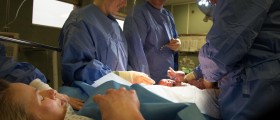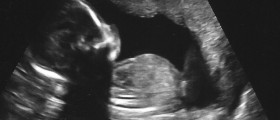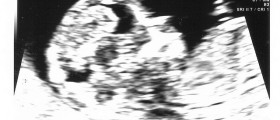
Previa of the placenta is when the placenta has not completely implanted itself, this only actually affects one in the every two hundred pregnant women.
Three Types of Previa
Complete previa is when the opening to the uterus is totally enclosed. A partial previa is exactly what it says, just part of the cervix is sheltered with the placenta. And the third type is a marginal previa which means the placenta only goes to the rim of the cervix.
Diagnosing of a Previa
When a pregnant woman suffers from some bleeding that is painless in the third trimester then this could be a sign of previa. The doctor will decide it is probably unwise to do an internal exam at this point and will opt for an ultrasound to check initially. Unfortunately a false positive diagnosis occurs ten percent of the time and saying that, there is also a false negative diagnosis in about seven percent of patients. Doctors may believe a pregnant woman to have previa if she is experiencing contractions too early on or if the baby is breached and also they may suspect previa if the measurements of the woman’s uterus are too large for the given dates. Pregnant woman in their second trimester will often be diagnosed with previa because the placenta has at least thirty five percent of the space however by the time the female gets to her third trimester, the majority of them will have sorted themselves out naturally.Complications of Previa for the Baby
The baby could possibly have a secondary to an acute amount of blood loss due to previa and they could also suffer with intrauterine growth restriction because of the bad placental perfusion. Unfortunately the baby can also experience increased incidences of congenital anomalies. Complications of Previa for the Mother
The mother to be can experience a life-threatening hemorrhage and may have to go through a cesarean delivery. Because of the previa the female will have an increased risk of postpartum hemorrhage. The pregnant woman may also have to battle with the fact that the placenta attaches directly to the uterine muscle. This is called placenta accrete. If you are diagnosed with placenta previa, you will be put on bed rest and will have to go frequently to the hospital.
Causes of Placenta Previa
If you are an older woman in pregnancy and/or have had a lot of pregnancies then you are at a higher risk of previa














Your thoughts on this
Loading...